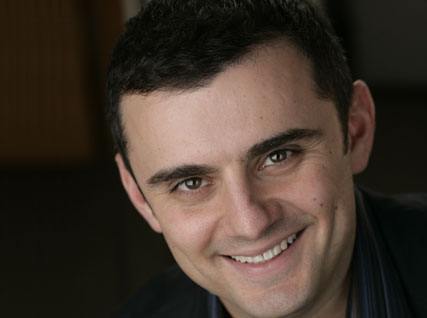
If you scroll through this blog’s archives, you’ll find many different examples of how being authentic is central to successful online reputation management. But there are few better examples of the value of authenticity than Gary Vaynerchuk.
If you’ve read David Segal’s recent New York Times piece—or any of the countless other profiles on Vaynerchuk —you know the remarkable story of his rise from the savvy social media manager/über marketer for a New Jersey wine retailer to one of the top branding and social media thought leaders. In today’s climate, where building a personal brand has become an almost universal concern, we can all benefit by looking at the strategies and tools that have fueled his success. Loud, brash and profane, Vaynerchuk’s personality doesn’t appeal to everyone. But he doesn’t try to.
Uncompromising authenticity has been at the heart of his approach since his breakout video blog, Wine Library TV, which Segal describes as “Mr. Vaynerchuk sitting at a table in his office, demystifying chardonnays, rieslings and other wines by describing them in terms that any mook could understand.” The blog not only presents Vaynerchuk as an unvarnished, passionate and accessible wine enthusiast, but also demonstrates his shrewd understanding of his medium. “My high quality content definitely factored in, but that might not have mattered had I not also made native content—authentic content perfectly crafted for that particular new platform, YouTube,” he reflects.
Early Adopter of Twitter
As an early adopter of Twitter, Vaynerchuk has harnessed it with a similar combination of candidness and insight. “It was the platform that came most naturally to me, because it was perfectly suited for small bursts of quickfire conversation and idea exchanges,” he writes in his latest book, Jab, Jab, Jab, Right Hook: How to Tell Your Story in a Noisy Social World. Vaynerchuk understands that the platform is about more than just “microblogging.” It’s about engaging directly—or, as he puts it, “creating context.”
“Twitter is the cocktail party of the Internet—a place where listening well has tremendous benefits,” he observes in Jab, Jab, Jab, Right Hook. And listen he does. “About 90 percent of Mr. Vaynerchuk’s tweets are direct replies to people who have written to or about him,” Segal points out in the Times. “I always say that our success wasn’t due to my hundreds of online videos about wine that went viral,” Vaynerchuk wrote in an Entrepreneur article, “but to the hours I spent talking to people online afterward, making connections and building relationships,”
Content Is King
Vaynerchuk also emphasizes the importance of creating content. A recent Forbes article went so far as to call it “the cost of entry to relevance in today’s society” and encouraged people to create as much as possible. “It literally doesn’t matter what you do, if you’re not producing content, you basically don’t exist,” he has declared. Vaynerchuk’s characteristic hyperbole aside, this argument has resonance when it comes to online reputation management.
If you don’t publish content that provides accurate and appropriate information about yourself, your company, area of expertise or organization, you are not just losing an opportunity to build your brand—you are endangering it, essentially relinquishing control of your online image anyone else who decides to post content about you. Bringing together engagement and authenticity as well as content and context, Vaynerchuk’s approach highlights some valuable tools and strategies for managing one’s reputation online. G.E.’s Linda Boff may sum it up best. “When I think about Gary, I think about scrappiness before anything else,” she tells Segal in his Times piece. “He lives his own life out loud.”


